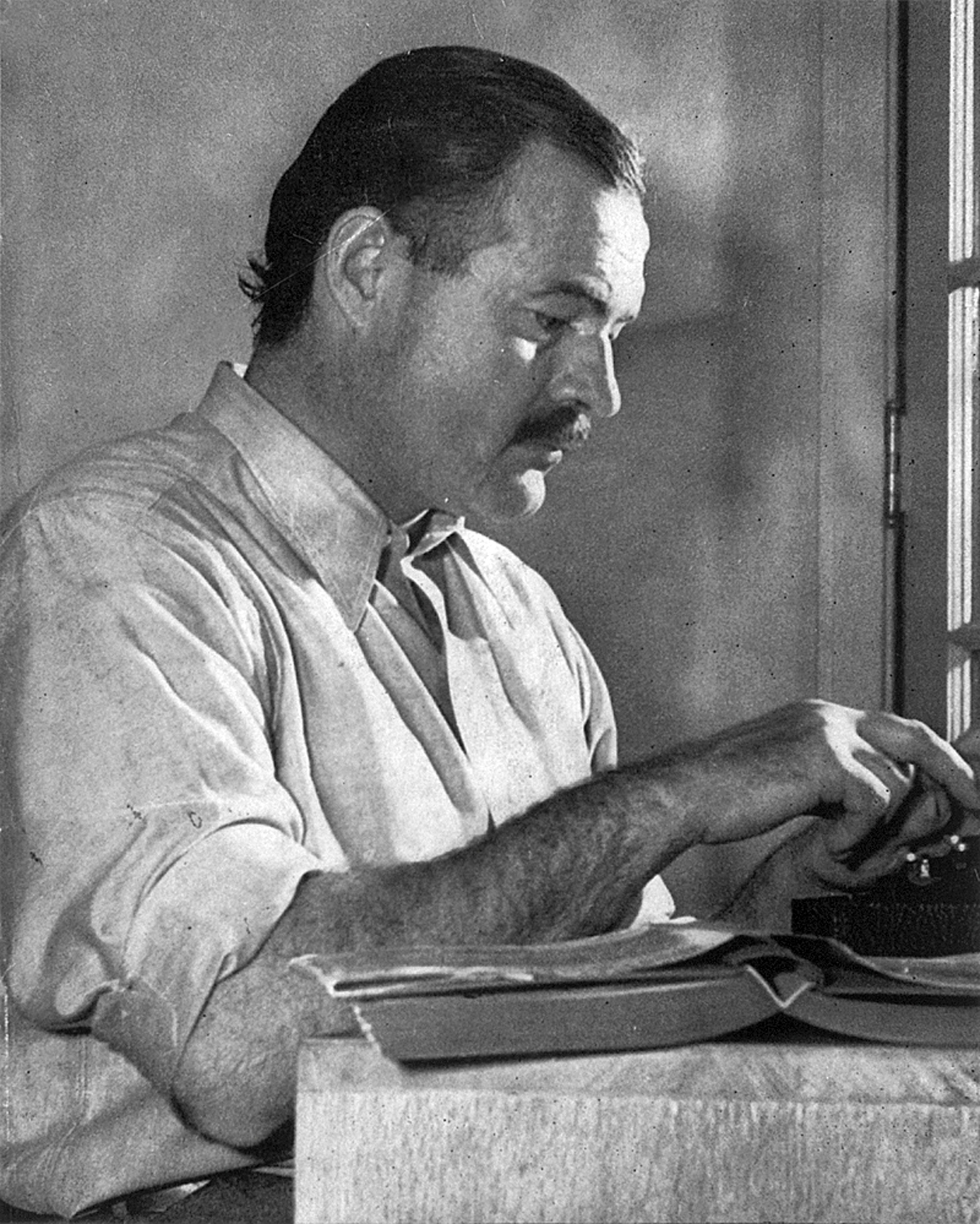Postscript to letter to critic, poet and translator Ivan Kashkin (19 August 1935); published in Ernest Hemingway: Selected Letters 1917–1961 (1981) edited by Carlos Baker
Ernest Hemingway Quotes
Letter (12 January 1936); published in Ernest Hemingway: Selected Letters 1917–1961 (1981) edited by Carlos Baker
Letter (26 August 1940); published in Ernest Hemingway: Selected Letters 1917–1961 (1981) edited by Carlos Baker
Pt. 2, Ch. 7
Papa Hemingway (1966)
Pt. 2, Ch. 5
Papa Hemingway (1966)
On Ezra Pound, as quoted in The New Republic (11 November 1936)
Bill Gorton to Jake Barnes, in Book 2, Ch. 12
The Sun Also Rises (1926)
The greater the work of literature, the easier the parody. The step up from writing parodies is writing on the wall above the urinal.
Pt. 1, Ch. 4
Papa Hemingway (1966)
“All modern American literature comes from one book by Mark Twain called Huckleberry Finn.”
[…] it's the best book we've had. All American writing comes from that. There was nothing before. There has been nothing as good since.
Part I, Ch. 1
Green Hills of Africa (1935)
A Letter from Cuba (1934)
Source: Death in the Afternoon (1932), Ch. 9
“Writing and travel broaden your ass if not your mind and I like to write standing up.”
Letter (9 July 1950); published in Ernest Hemingway: Selected Letters 1917–1961 (1981) edited by Carlos Baker
“That Muretto di Alassio by Mario Berrino is a beautiful color film.”
Domenica del Corriere, 1973
Letter to Malcolm Cowley (17 October 1945); published in Ernest Hemingway: Selected Letters 1917–1961 (1981) edited by Carlos Baker
Letter to F. Scott Fitzgerald (1 July 1925); published in Ernest Hemingway: Selected Letters 1917–1961 (1981) edited by Carlos Baker
Letter (1924) to Ezra Pound; published in Ernest Hemingway: Selected Letters 1917–1961 (1981) edited by Carlos Baker, p. 113
'Of course not. But you always do. Dead or alive.'
David and Colonel John Boyle in Ch. 7
The Garden of Eden (1986)
'All right. I'll grow one. I'll start now this minute. It's a good idea. It will give me something to do.'
Catherine and Henry discussing whether he should grow a beard, in Ch. 38
A Farewell to Arms (1929)
Letter to F Scott Fitzgerald, as quoted in Scott Fitzgerald (1962) by Andrew Turnbull (1962) Ch. 14
Letter to Bernard Berenson (13 September 1952); published in Ernest Hemingway: Selected Letters 1917–1961 (1981) edited by Carlos Baker
Letter to Malcolm Cowley (14 November 1945); published in Ernest Hemingway: Selected Letters 1917–1961 (1981) edited by Carlos Baker
“Remember everything is right until it's wrong. You'll know when it's wrong.'
'You think so?”
'I'm quite sure. If you don't it doesn't matter. Nothing will matter then.'
Colonel John Boyle and David in Ch. 7
The Garden of Eden (1986)
'When you love somebody.'
Catherine and David Bourne in Ch. 1
The Garden of Eden (1986)
“What happens to people that love each other?”
'I suppose they have whatever they have and they are more fortunate than others. Then one of them gets the emptiness for ever.'
Colonel Richard Cantwell and Renata in Ch. 38
Across the River and into the Trees (1950)
“Tell me some true things about fighting.'
'Tell me you love me.”
'I love you,' the girl said. 'You can publish it in the Gazzettino if you like. I love your hard, flat body and your strange eyes that frighten me when they become wicked. I love your hand and all your other wounded places.'
Renata and Colonel Richard Cantwell in Ch. 12
Across the River and into the Trees (1950)
“But are there not many Fascists in your country?”
'There are many who do not know they are Fascists, but will find it out when the time comes'.
Source: For Whom the Bell Tolls (1940), Ch. 16
“Oh, Jake,' Brett said, 'we could have had such a damned good time together.”
Ahead was a mounted policeman in khaki directing traffic. He raised his baton. The car slowed suddenly pressing Brett against me.
'Yes,' I said. 'Isn't it pretty to think so?'
Book 3, Ch. 19 (the last lines of the novel)
The Sun Also Rises (1926)
“You know it makes one feel rather good deciding not to be a bitch.'
'Yes.”
'It's sort of what we have instead of God.'
Lady Brett Ashley to Jake Barnes, in Book 3, Ch. 19
The Sun Also Rises (1926)
Bill asked.
'Two ways,' Mike said. 'Gradually and then suddenly.'
Book 2, Ch. 13
Mike's response is often misquoted as "It occurs first very slowly, then all at once."
The Sun Also Rises (1926)
“All right. Have it your own way. Road to hell paved with unbought stuffed dogs. Not my fault.”
The Sun Also Rises (1926)
"The Age Demanded" in Der Querschnitt (February 1925); as quoted in Sylvia Beach and the Lost Generation (1983) by Noel Riley Fitch
“It is good to have an end to journey towards; but it is the journey that matters, in the end.”
The Left Hand of Darkness (1969) by Ursula K. Le Guin, in Chapter 15 "To the Ice"
See also https://www.huffpost.com/entry/hemingways-stolen-quotati_b_6868994.
Misattributed
Variant: It is good to have an end to a journey, but it is the journey that matters, in the end.
